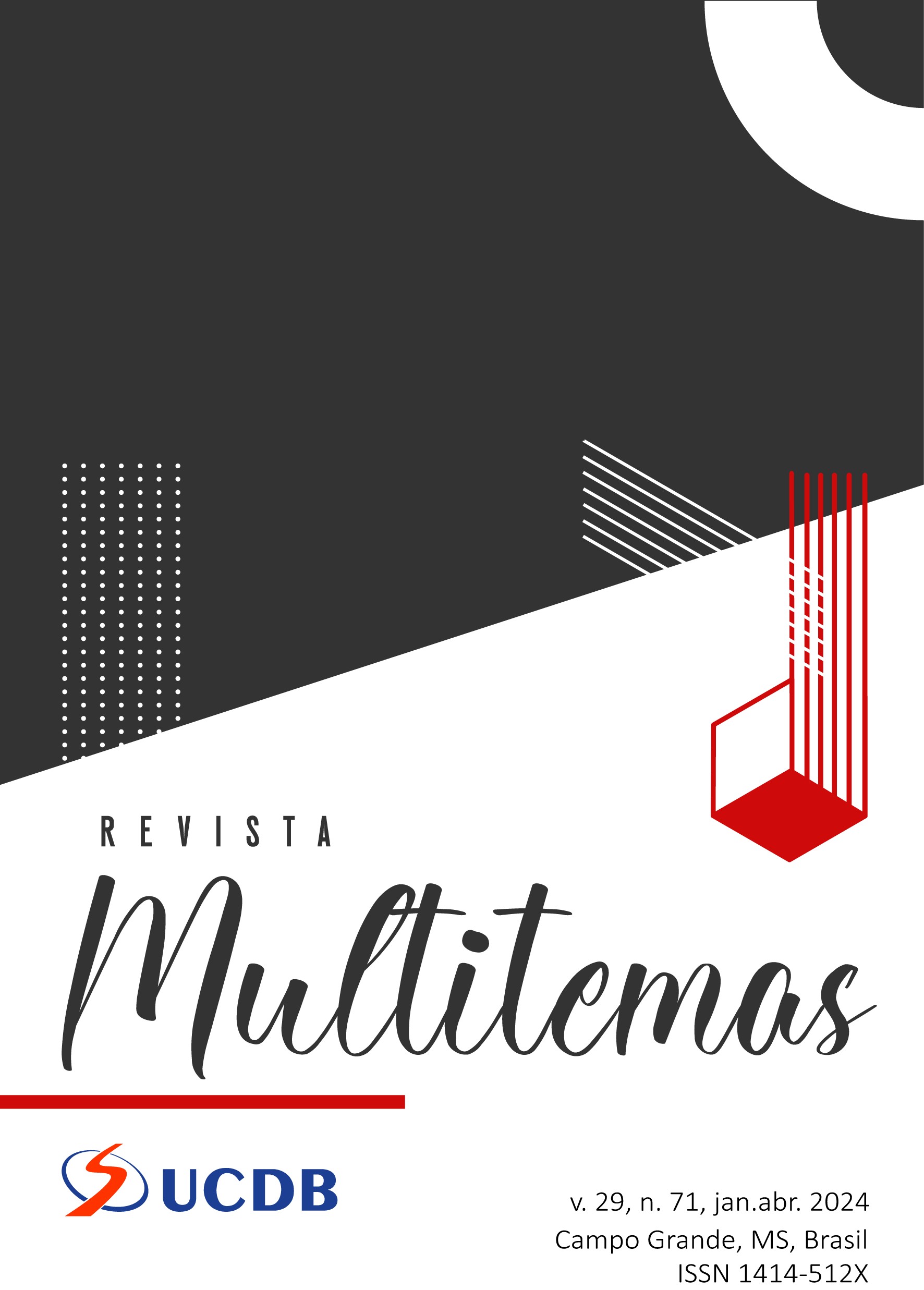Human rights and offenses against honor in the digital era
DOI:
https://doi.org/10.20435/multi.v29i71.4247Keywords:
Human Rights, Digital Era, Freedom of expression, Crimes against honor, CybercrimesAbstract
This article addresses the theme of offenses against honor in the digital era and analyzes how Brazilian legislation combats these infractions. With the advancement of technology and the advent of the internet, the dissemination of information and quick access to social networks have provided a conducive environment for the spread of insults and defamatory information. In this context, offenses against honor - slander, defamation, and insult - take on new dimensions and challenges in the digital era. Given this scenario, the central objective of this work is to provide an in-depth analysis of offenses against honor in the Digital Era, elucidating their characteristics, the legal treatment established by Brazilian legislation, and the intrinsic relationship with Human Rights. The aim is to understand how technological evolution has influenced the commission of these offenses and how the legal system must adapt to this new reality, ensuring the protection of essential values for societal coexistence. The methodology employed in this research will be bibliographic in nature, based on qualitative and quantitative sources, with analysis of doctrines, scientific articles, case law, and relevant legal norms on the subject. The results of this research point to the need for broader and updated legislation to address offenses against honor in the digital era. Technological evolution has brought new forms of propagation of insults, such as social networks and messaging applications, which demand a more effective approach by legal authorities in identifying and holding offenders accountable.
References
BITENCOURT, Cezar Roberto. Código Penal comentado. São Paulo: Saraiva, 2021.
BOLSON, Heloisa Cristina. Crimes contra a honra na internet: implicações jurídicas e sociais da difusão do discurso de ódio. São Paulo: Saraiva, 2016.
BRASIL. Lei n. 14.132, de 1 de abril de 2021. Ementa: Acrescenta o art. 147-A ao Decreto-Lei nº 2.848, de 7 de dezembro de 1940 (Código Penal), para prever o crime de perseguição; e revoga o art. 65 do Decreto-Lei nº 3.688, de 3 de outubro de 1941 (Lei das Contravenções Penais). Diário Oficial da União: Brasília, DF, 2 abr. 2021. Disponível em: http://www.planalto.gov.br/ccivil_03/_ato2019-2022/2021/lei/L14132.htm. Acesso em: 31 jul. 2023.
BRASIL. Lei n. 13.709, de 14 de agosto de 2018. Dispõe sobre a proteção de dados pessoais e altera a Lei nº 12.965, de 23 de abril de 2014 (Marco Civil da Internet). Diário Oficial da União: Brasília, DF, 15 ago. 2018.
BRASIL. Lei n. 13.188, de 11 de novembro de 2015. Ementa: Dispõe sobre o direito de resposta ou retificação do ofendido em matéria divulgada, publicada ou transmitida por veículo de comunicação social. Diário Oficial da União: Brasília, DF, 12 nov. 2015. Disponível em: http://www.planalto.gov.br/ccivil_03/_ato2015-2018/2015/lei/l13188.htm. Acesso em: 31 jul. 2023.
BRASIL. Lei n. 12.965, de 23 de abril de 2014. Marco Civil da Internet. Diário Oficial da União: Brasília, DF, 24 abr. 2014.
BRASIL. Lei n. 12.737, de 30 de novembro de 2012. Lei Carolina Dieckmann; Lei de Crimes Cibernéticos. Diário Oficial da União: Brasília, DF, 3 dez. 2012.
BRASIL. Lei n. 7.716, de 5 de janeiro de 1989. Define os crimes resultantes de preconceito de raça ou de cor. Diário Oficial da União: Brasília, DF, 6 jan. 1989. Disponível em: http://www.planalto.gov.br/ccivil_03/leis/l7716.htm. Acesso em: 31 jul. 2023.
BRASIL. [Constituição (1988)]. Constituição da República Federativa do Brasil. Brasília, DF: Presidência da República, 1988. Disponível em: https://www.planalto.gov.br/ccivil_03/constituicao/constituicao.htm. Acesso em: 8 jun. 2023.
BRASIL. Decreto-Lei n. 2.848, de 7 de dezembro de 1940. O Presidente da República, usando da atribuição que lhe confere o art. 180 da Constituição, decreta a seguinte lei: CÓDIGO PENAL Parte Geral. Diário Oficial da União: Brasília, DF, 31 dez. 1940. Disponível em: http://www.planalto.gov.br/ccivil_03/decreto-lei/del2848.htm. Acesso em: 31 jul. 2023.
ONU. Declaração Universal dos Direitos Humanos. Paris: Genebra, 1948. Disponível em: https://www.un.org/pt/universal-declaration-human-rights/. Acesso em: 30 jun. 2023.
Downloads
Published
How to Cite
Issue
Section
License
Copyright (c) 2023 Fernanda Victorio Pollak, Pedro Pereira Borges

This work is licensed under a Creative Commons Attribution 4.0 International License.
Os artigos publicados na Revista Multitemas têm acesso aberto (Open Access) sob a licença Creative Commons Attribution, que permite uso, distribuição e reprodução em qualquer meio, sem restrições desde que o trabalho original seja corretamente citado.
Direitos Autorais para artigos publicados nesta revista são do autor, com direitos de primeira publicação para a revista. Em virtude de aparecerem nesta revista de acesso público, os artigos são de uso gratuito, com atribuições próprias, em aplicações educacionais e não-comerciais.


